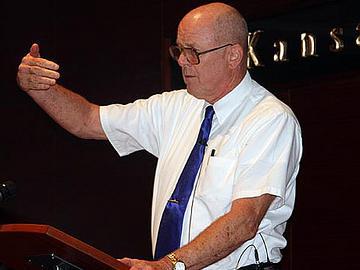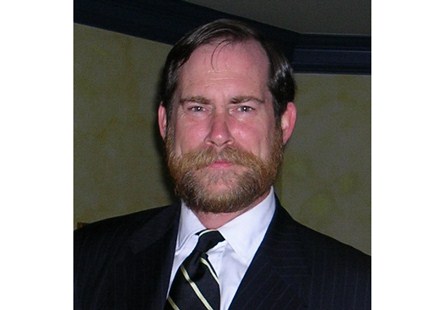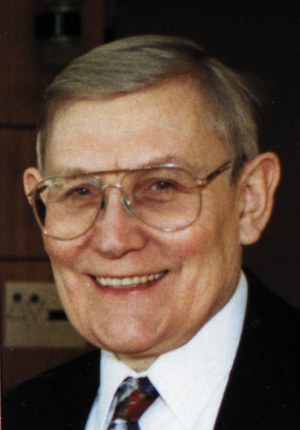Published 19-12-2012, 00:44
Although 2012 brought leadership changes in
Russia and China, both countries have, in fact, seen continuity. Vladimir Putin
returned to the presidency after four years as the dominant partner in the "tandem”
under President Dmitry Medvedev, while China’s highly consensual system
confirmed Xi Jinping as the new Secretary of the CCP. Meanwhile, in the United
States President Barack Obama secured another four years in office,
convincingly defeating his Republican challenger, Mitt Romney.
Given the unrelenting economic crisis, the turmoil in the Middle East, North Korea’s flexing of its nuclear muscles, the menace of terrorism and the insurmountable challenges of state building in countries such as Afghanistan, Iraq, Somalia, and others, political continuity in the world’s major powers is surely good news.
As regards US-Russia relations, Obama’s re-election is without doubt preferable to a Romney presidency, given the latter’s harsh anti-Russian rhetoric. At the same time, there is an urgent need for the two countries to begin a new chapter in their troubled relations. The early signs are encouraging. Although the US political class as a whole continues to take a tough stand against Russia – as demonstrated by the recent passage of the Magnitsky Bill – the White House and its new foreign policy team will likely opt for pragmatism. Indeed, shortly after his re-election Obama readily accepted Moscow’s invitation to visit Russia. And the expected change of guard at the State Department is also a good omen.
There is no need to talk about a "reset” or any other such concept. All that is needed is good old-fashioned realism and pragmatism to aim for tangible positive results. What that means for the US is finally accepting that Russia’s domestic affairs are strictly for the Russians themselves to deal with. Obama may not like Putin personally and may have issues with his policies, but he should be able to acknowledge that the Russian president was re-elected by a large majority and remains the most popular politician in his country.
In foreign policy, Obama has the opportunity to meet the obligations that were implicitly handed down by the Nobel Committee when it awarded him the Peace Prize in 2009. Sergei Roy, a member of this Panel, recently commented that the US president should strive for "less confrontation and more emphasis on issues where joint action will make the world a safer place.” Among other things, this would include avoiding a "Libya-type scenario” in Syria (and working with Russia and China toward a negotiated settlement), activating the role of Middle East Quartet to tackle the issues involving the Arab countries, Israel and Iran and seek serious progress on joint ballistic missile defense.
Questions:
- Given that in his second term he does not have to worry about re-election, will Obama throw caution to the wind and take a more constructive approach toward US-Russia relations?
- Is it realistic to expect the White House to adopt such an approach toward other global issues as well?
- What should Moscow and Beijing do to contribute to an overall improvement in relations between the major powers in 2013?
------------------------
The topic for the Discussion Panel is provided by Vlad Sobell,
Editor, Expert Discussion Panel
Professor, New York University, Prague
Editor, Consensus East-West Europe
Expert Panel Contributions
Edward Lozansky
President American University in Moscow
Professor of World Politics, Moscow State University
The year 2012 ends on a rather sour note in US-Russia relations. Congress passed and Obama signed into law what I would describe as a very harmful Trade Bill, with Russia making a patently necessary but still pretty awkward response.
However, there is also some good news. The most important item is the continuing and even stronger realization on both sides that the two countries need each other's cooperation on both security and economic fronts.
A very unstable and dangerously volatile situation currently exists in the Middle East. Even the most hawkish US politicians and pundits admit that Russia's cooperation is a key factor there. It may not perhaps help keep the events in this part of the world entirely under control, but it can at least be instrumental in reducing the numerous destabilizing dynamics.
Iran's nuclear ambitions loom large on the geopolitical horizon, and America needs all the help it can get from Russia to avoid the extremely dangerous scenario of an attack on Iran’s nuclear sites, which would be fraught with unpredictable results.
Continuing negotiations on conventional and nuclear weapons reduction are also a priority for both sides. Russia can now bring more resources to bear on its disarmament commitments. As was recently reported, over $7 billion has gone toward the decommissioning of chemical weapons and nuclear submarines alone.
Russia benefits to a considerable degree from the presence of US and NATO troops in Afghanistan, so it is not too anxious to see their withdrawal. It would be very wise for the West to include Russia in the negotiations on the military configuration in Afghanistan after 2014.
Expansion of trade links between America, Europe and Russia would be very logical in view of Russia's accession to WTO and the final repeal of the notoriously obsolete Jackson-Vanik amendment.
The Arctic area opens new exciting opportunities not only for the discovery and exploitation of new energy resources but also for the development of new, northern transportation links.
The United States, NATO and Russia should stop their empty and meaningless talk about joint missile defense and make real progress in developing such a system.
The above is just a very short and tentative priority list. It could be expanded almost indefinitely as both countries can find common interests in practically any field – from agriculture and climate control to space exploration and combating terrorism.
All of this, of course, requires goodwill and a genuine realization that both the US and Russia will greatly benefit from cooperation rather than confrontation.
I have made the following point before, but it doesn’t hurt to be repeated again and again. There are two schools of political thought in the US. The first considers Russia to be a reincarnation of the Soviet Union, and while there may no longer be ideological differences between Russia and America, geopolitical conflicts remain. That is why the followers of this school see Russia as an unfriendly country and some even as a geopolitical enemy. Unfortunately, the vast majority of the mainstream American media holds these views, and this influences public opinion accordingly.
The second school consists of pragmatists who realize that Russia has made, within a relatively short period, substantial progress in freedom, human rights, and democracy. They understand that this is not enough, that more progress is needed. However, even as a rather imperfect democracy, Russia can still be a very important geopolitical partner for the US and Europe and must be treated accordingly.
Far from strengthening the cause of democracy in Russia, on-going Western lecturing and interference in that country's internal affairs damages the image of the opposition to the Putin regime that the West is trying to aid and abet. Russians are smart enough to handle their internal affairs themselves without Western moralizing and hectoring. The followers of this school believe that instead of such confrontational practices, both Russia and the West should identify common problems and work together to find their solutions.
Admittedly, those in the West who identify themselves with the second school are in the minority these days, but I remain confident that our case is far from hopeless.
 Mark Nuckols
Mark NuckolsProfessor of law and business at Moscow State University and at the Russian Academy of National Economy
It is possible in 2013 to expect new initiatives in US – Russia cooperation? At first glance, it may appear that the unfortunate passage of the Magnitsky Act will irrevocably poison relations between the two countries. However, their more vital mutual interests will work to overcome the political and diplomatic fallout from this misguided attempt by Congress to interfere in Russia’s internal affairs.
Since the Second World War, the essential contours of US foreign policy and defense strategy has rarely shifted with changes in the White House. And since the Truman administration, there has not been any profound difference between Republican and Democratic administrations when it comes to relations with Russia. However, there is in the coming year real potential for significant and perhaps dramatic improvement in relations between the US and Russia in President Barak Obama’s second term of office. Compared to George W. Bush, Obama does have a fundamentally different understanding of US national interests, which will substantially affect Russia and its relations with the US. And Obama has shown himself to be an exceptionally pragmatic politician.
He has four years to further establish his historical legacy, and achieving one of his most urgent priorities requires agreement with Russia. Obama believes nuclear weapons are an existential threat to both the US and the entire world. This is an issue which he has frequently and in detail discussed long before he became president. And Obama believes that he has a realistic prospect to achieve additional and significant cuts in US and Russian nuclear strategic and tactical weapons.
Unlike Republicans like John McCain, for example, Obama is unburdened by fears or delusions left over from the Cold War era. He is therefore willing, and politically able, to find common ground with Moscow to gain what he believes will be one of his signal achievements while conceding on issues he considers of distinctly secondary importance for US vital interests. In the first half of his first term, Obama secured a sharp reduction in US and Russian nuclear arsenal. If the Kremlin is ready and willing to reach a deal, Obama can achieve an agreement on further nuclear cuts if he makes the deal attractive to the Kremlin.
One thing that the Kremlin wants most and what Obama will may be willing to offer is a new and mutually acceptable configuration of US missile defenses in Europe. Russia will also find Obama in his second term more amenable on matters it considers to be vital to its interests in the former Soviet republics. Obama does not have any great desire to promote "color revolutions” in Russia’s backyard. After the United States' failed attempts to convert Iraqis and Afghans to the US-style democracy, Obama has no illusions about the eagerness of all peoples to adopt the American way of life.
Like all presidents, Obama would like to leave a positive historic legacy in US and world history. To do so, he needs Russian cooperation to achieve his most important foreign policy objectives. Under an Obama administration, Russia has a unique opportunity to secure real and valuable agreement with the US in areas of its own national interest as well as in its mutual interests with the US. Despite the unfortunate and misguided passage of the Magnitsky Act, 2013 could nonetheless turn out to be an exceptionally productive year for US-Russia relations.
 Dale Herspring
Dale HerspringUniversity Distinguished Professor of Political Science
Kansas State University
Obama’s enhanced ability to make major decisions vis-a-vis Russia is clearly a possibility. After all, he told Medvedev that he would have more flexibility in dealing with anti-missile defense issues if he were re-elected. However, I am not sure how high Russia is on his list of what to do. I think a positive action by Putin would give Obama an opening. As I understand it, they are due to meet in the near future. This gives Putin an opportunity to take the initiative. A joint policy toward Syria would seem to be a possibility – now that it appears clear that Assad's days are numbered.
Much depends on whom Obama appoints as the Secretary of State. If it is Rice then I think the kind of global issues will get higher on her agenda. If it is Senator Kerry, I think the chances of a more global approach are less likely, unless Obama instructs him to do so. [Editor’s note: It has since been announced that Senator John Kerry will be appointed Secretary of State.]
For Beijing, I think North Korea is the key. Clearly, the missile that was successfully launched has everyone focusing on China. Russia is much different and here as I noted above, much depends on the personality of the Secretary of State and the president. If Obama is determined to improve relations with Moscow and Putin is ready to reciprocate, there is a possibility it will be accomplished. But keep in mind, Obama can only do so much before he turns into problems with Congress.
 Patrick Armstrong
Patrick ArmstrongPatrick Armstrong Analysis,
Ottawa, Canada
Here is my very short answer to the first two questions: No.
The overwhelming support for the Magnitsky Bill shows that there is a considerable non-partisan majority in Congress that believes that Russia is an exception to normal rules: trade with Russia yes, but never without conditions.
The US is lost to rational considerations in this respect; for Americans Russia is both the Eternal Enemy and The Brother Who Won’t Listen to Good Advice.
To Americans in power, that is: to ordinary Americans, Russia hardly signifies in the reality of unemployment and food stamps.
The opportunity that opened in 1991 has been squandered: Washington and those of us who follow its lead have taken another step to create an enemy. And at a time when we do not need any more than we already have.
Vladimir Kozin
Leading Researcher, Russian Institute for Strategic Studies, Moscow
My response to the first question:
I do not think that President Obama will adopt a more constructive approach toward US-Russia relations because: a) he has no such intention at all; b) the US military-industrial complex will "advise" him not to do so; c) he has to take into account the number of US voters who cast their ballots in favor of Mitt Romney (which means nearly half of the electorate), the presidential challenger who sharply attacked Russia and President Putin during the campaign; d) the general mood in Washington toward Moscow is rather negative, to put it mildly: consider for example, the Magnitsky Act and Hillary Clinton's recent remarks on the "Sovietization” of the post-Soviet space.
My response to the third question:
Russia does not need to do anything to contribute to an overall improvement in relations between the major powers in 2013. The other powers should seek to improve relations with Russia, especially in nuclear and conventional arms control. As to the PRC, Beijing has to answer to the question "what to do to contribute to an overall improvement in relations between the major powers", but not Moscow, because each great power speaks for itself. And why Beijing only? My general view in this context is that all great powers have to make reciprocal steps towards each other in order to improve the global military-political climate, especially in nuclear and missile defence arms control.
 Dmitry Mikheyev
Dmitry MikheyevFormer Senior Fellow at the Hudson Institute, teaches "Leadership in the 21st century” at various business schools in Moscow
Indeed, why should the US not "accept that Russia’s domestic affairs are strictly for the Russians themselves” and switch to "good old-fashioned realism and pragmatism”? Easier said than done.
I fully sympathize with idealists who admire American democracy because a few decades ago I had myself been as naïve and romantic as they are. It took me thirty years of living in the US and studying it to comprehend the profound flaws of the American democratic model.
"This is a theater of the absurd,” says Vladimir Putin. "It’s amazing,” echoes Duma Speaker Sergey Naryshkin, "that a country which created abroad undercover prisons where lawlessness runs rampant and inmates are subject to torture like in the Middle Ages is preaching human rights to other countries.” In fact, Putin and Naryshkin captured the fundamental paradox of American democracy, which has bothered American and European intellectuals from the moment of its inception: Can liberty, democracy and happiness be imposed on others by harsh and even cruel methods?
This is what troubled two French aristocrats Beaumont and Tocqueville when they studied American penitentiary system in the early 1800s. These liberal-minded admirers of America and the American model of democracy were shocked by the cruelty of its penitentiary system. They wrote: "While society in the United States gives the example of the most extended liberty …, American prisons offer the spectacle of the most complete despotism.”[1] They also noted that up to three-fourths of American prisoners were "marginal minorities” and recent immigrants.
These features of American penitentiary system remain true today. It is the most punishing and cruel among those of industrialized nations and it is highly selective. The American system of justice hands downs punishments and dishes out rewards in a highly discrete manner. There are many (not just two) sets of standards that are applied to different ethnic group or nations according to their place in the racial and civilizational hierarchy.
The philosophy of "liberal democracy” was founded by "enlightened humanists” who were not only slaveholders but exterminators of Native Americans. How did these "natural aristocrats” reconcile liberty, equality and pursuit of happiness with slavery and genocide? Jeffersonians and their followers developed a rather bizarre theory, according to which misguided individuals, freed slaves and recent immigrants were unfit for democracy because they were raised in cultures of brutality, despotism and blind obedience and were unable to exercise moral restraint and sober judgment. They needed to be thoroughly trained in quiescent obedience, self-control and social civility. This training was assumed to eventually transform criminals into mature men and trustworthy citizens.[2]
The question of how lengthy incarceration, strict discipline, harsh living conditions and hard labor could transform "deviants” into freedom-loving yet responsible citizens of liberal democracy remains a greatest mystery of the founding fathers’ logic. But how does this theory of Benign Patriarchy relate to the democratizing and civilizing of the world?
The alleged uniqueness and superiority of Anglo-Protestant culture imply that people of many (particularly non-European) cultures lack libertarian and democratic "instincts” and are not capable of containing destructive passions by reason and therefore balancing personal freedom and self-discipline. Liberated from "tyrants” these peoples tend to fall into the chaos of Hobbesian war of all against all and inevitably opt for dictatorial regimes.[3]
Hence spreading liberty's blessings to such countries inexorably involves the use of coercive methods. The obstinate enemies of democracy have to be defeated and destroyed. The country should be subjugated, occupied and gradually taught liberal-democratic ways. The remaining "unlawful enemy combatants” should be locked up in prisons where, with the help of chains, torture, mock executions and other forms of humiliation, their personal identity is destroyed and their willpower to resist broken. We saw this policy in Afghanistan, Iraq, Libya; and this is what likely lies ahead in Syria.
Russia and other former communist nations of Europe are treated much more humanely. From the Patriarch’s point of view, these new arrivals to the democratic community of nations resemble immigrants arriving from Europe in the early 19th century and deserve relatively benign treatment. Like immature boys, they need firm paternal guidance. Some, like Russians, are big and rebellious (like the Irish in the mid-19th century); others, like Czechs, Estonians or Hungarians, are small and eager to comply with the norms of liberal democracy. Hence the American Benign Patriarch dispenses carrots and lashes accordingly. In fact, from His point of view, Russia has nothing to complain about – His admonitions for human rights violations (such as the Magnitsky Act) are the mildest form of punishment He can think of. How else can evolution toward the one and only true democratic model be stimulated? These things don’t happen by themselves because by nature man is selfish, anarchistic and aggressive. If some former officials of the Evil Empire don’t understand how humane this treatment is and call it a hostile act, it only shows just what intransigent enemies of democracy they are.
What I did not understand decades ago, and what many admirers of American democratic model still do not comprehend, is that all this is based on a very pessimistic concept of human nature (see Madison in Federalist 10). Consequently, deep at heart, the ideology of "liberal democracy” which the Founders and Framers created is highly elitist and even racist. This is where the absurd notion that killing, imprisonment, torture and humiliation can spread freedom, democracy and human rights originates.
In contrast, the true democrats’ view of human nature is expressly optimistic. They believe that "instincts” of freedom, compassion and cooperation are not rare gifts, that all humans are equally endowed with them.[4] Hence, democracy is a natural form of social life and does not have to be taught in Abu Ghraib, Guantanamo and other such colleges of humanism.
[1] Gustave de Beaumont and Alexis de Tocqueville, On the Penitentiary System in the United States and Its Application in France (South Illinois U. Press, 1833/1964)
[2] Mark Kann, Punishment, Prisons, and Patriarchy: Liberty and Power in the Early American Republic (New York U. Press, 2005).
[3] Michael Ignatieff, American Exceptionalism and Human Rights (Princeton U. Press, 2005).
[4] Dacher Keltner et al, The Compassionate Instinct: The Science of Human Goodness (Norton, 2010)



_jpg/250px-ElbeDay1945_(NARA_ww2-121).jpg)






